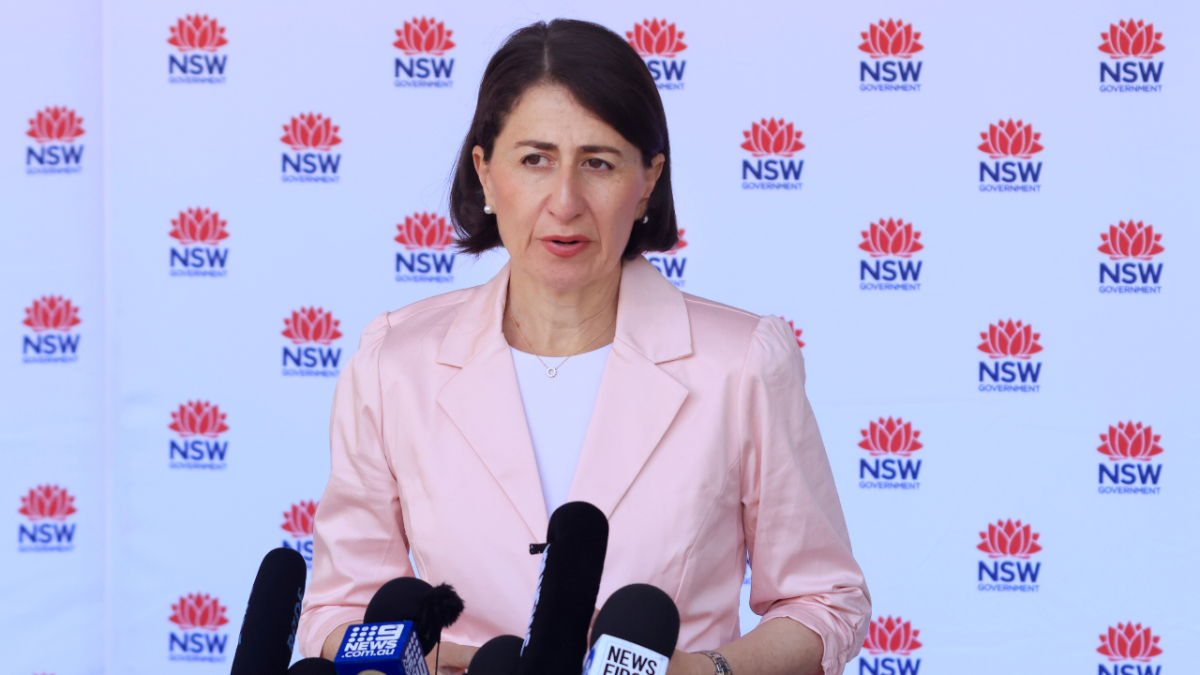
NSW Police Commissioner Mick Fuller offered a half-baked solution to the so-called “sexual assault crisis” in the form of a consent app last week.
But in NSW, larger structural change has been on the cards for a long time. In November, the state’s Law Reform Commission handed down its report on consent law, recommending changes to legislation that would better serve survivors.
In a state where less than 2% of sexual assault prosecutions are successful, those changes to legislation are so vital.
Especially after the NSW Police Commissioner, while fronting a press conference on Thursday about his proposed consent app, said something so deeply unhelpful: “I don’t think changing legislation is gonna help [victims of sexual assault].”
The Law Reform Commission, led by Justice Carolyn Simpson AO, recommended in their report that the NSW Crimes Act be updated to include the principles of the communicative model of consent, i.e. positive, affirmative consent.
“Every person has a right to choose whether or not to participate in a sexual activity,” the Commission’s report reads, adding that consent is not “presumed”.
“Consensual sexual activity involves ongoing and mutual communication, decision-making and free and voluntary agreement,” the recommendations continued.
The recommendations tackle things like the education of juries about misconceptions of sexual assault, including that someone was ‘asking for it’ because of the way that they dress, as well as ‘stealthing’ as a violation of consent.
Here’s how the report defines some of the murky ideas around consent:
- Consent can be withdrawn at any time, before or during a sexual encounter.
- A lack of physical or verbal resistance does not indicate consent.
- Just because a person consents to a particular sexual activity does not mean they consent to any other sexual activity – which makes ‘stealthing’, where a person removes a condom without the other person’s knowledge, a violation of consent.
- Just because someone consents one time doesn’t mean they consent every time, or to another partner.
The report also describes times when a person is not able to consent:
- A person does not consent if they don’t say or do anything to communicate consent.
- A person who is intoxicated, unconscious or asleep, or otherwise without capacity, cannot consent.
- A person does not consent if they participate in sexual activity due to force, fear, coercion, blackmail, intimidation or harm, whether that harm is directed at them, another person, an animal or property.
- The force/fear/coercion note explicates that that force/fear can occur as a pattern or a single instance, and can occur at any time – so reasonably covers off the pattern of abuse known as coercive control.
- A person who is unlawfully detained (see: kidnapped, trapped with an abuser, unable to leave their home) or is bribed cannot consent.
- The recommendations also seem to refer to abuses of power, saying that when a person is overcome by the abuse of a relationship of authority, trust or dependence they cannot consent.
- A person does not consent if they’re misled about the type or purpose of sexual activity (like if someone lies and says a sexual act is for health/hygiene/cosmetic reasons), or if they’re mistaken about who they’re having a sexual encounter with, including if they’re made to believe they’re married.
- Basically, you can’t lie and say you’re someone else in order to sleep with someone. It’s creepy and a person can’t give free and enthusiastic consent to that.
The report also recommends introducing new directions to juries that address common misconceptions about consensual and non-consensual sex, like ideas about the ‘right’ way to respond to a sexual assault (to fight them off, to shout).
Those directions include:
- Non-consensual activity can happen in many different circumstances and between different kinds of people, including people who know each other, are married, or are in a relationship.
- There is no typical response to non-consensual sexual activity, and people may respond in different ways, like freezing or not saying or doing anything. Juries can’t rely on preconceived ideas about the way alleged victims are ‘supposed’ to act in a sexual assault.
- People who do not consent may not be physically injured or threatened with violence. That absence doesn’t mean an alleged victim is lying.
- Trauma affects people differently, so some people may be obviously distressed while giving evidence, and others may not. The presence or absence of distress does not indicate an alleged victim is lying.
- Consent cannot be assumed because a person wore certain clothing or looked a certain way, consumed alcohol or any other drug, or was present at a particular place.
For a person to be convicted of a sexual assault, it needs to be ascertained not only that the alleged victim did not consent, but that the accused was aware of that fact. Luke Lazarus‘ conviction for the rape of Saxon Mullins was overturned in 2017 because his legal team successfully argued that he didn’t know that she didn’t consent.
Public outcry about that case led to the current review of NSW consent laws, yet, the report does not recommend changing that part of the Crimes Act, although qualifies some parts of the existing law, including that being intoxicated is not an excuse not to ascertain consent.
The report also recommends the NSW Department Of Communities And Justice funds research about the experiences of sexual assault complainants in the justice system. It adds that the NSW Government ought to review initiatives to educate the broader community about consent and sexual activity, and that these laws be reviewed every five years.
This is not an exhaustive review of what’s in the 250-page NSW Law Reform Commission report into consent law. But you can see pretty clearly from it the way there are concrete changes here that may better define consent and protect survivors, in a system that so often fails them.
It’s by no means a perfect set of recommendations, but it’s a hell of a lot better than the idea of recording consent in a dumb AF app.
Help is available.
If you require immediate assistance, please call 000.
If you’d like to speak to someone about sexual violence, please call the 1800 Respect hotline on 1800 737 732 or chat online.
Under 25? You can reach Kids Helpline at 1800 55 1800 or chat online.



